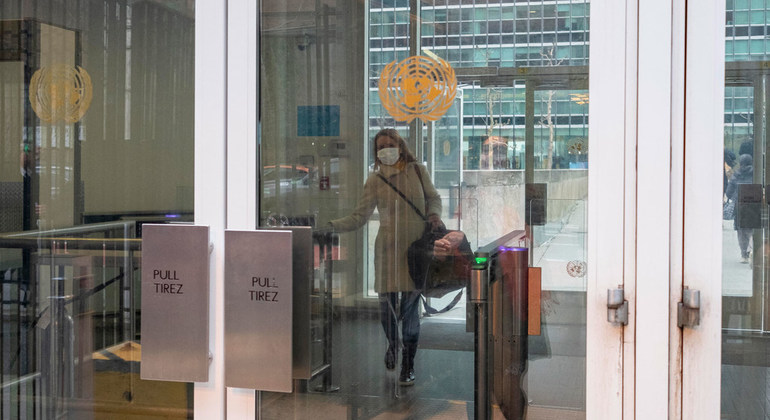WHO Director-General Tedros Adhanom Ghebreyesus was speaking during his regular update on the new coronavirus disease, one day after the new designation was announced.
“Let me be clear: describing this as a pandemic does not mean that countries should give up. On the contrary, we have to double-down”, he said.
“This is a controllable pandemic. Countries that decide to give up on fundamental public health measures may end up with a larger problem, and a heavier burden on the health system that requires more severe measures to control”.
WHO ‘working day and night’
COVID-19 first emerged in Wuhan, China last December. As of Thursday, there were nearly 125,000 cases in 118 countries and territories.
Tedros said WHO has been “working day and night” to support countries in their response.
The agency also is working with the World Economic Forum and the International Chambers of Commerce to engage the private sector, and also with the global football association, FIFA.
Additionally, more than $440 million has been pledged to WHO’s Strategic Preparedness and Response Plan.
“This is a new virus and a new situation. We’re all learning and we must all find new ways to prevent infections, save lives, and minimize impact. All countries have lessons to share”, he said.
More meetings cancelled at UN Headquarters
The UN Spokesperson told journalists in New York on Thursday that the Secretary General António Guterres “has taken the decision to cancel all United Nations system sponsored side events at Headquarters, from 16 March until the end of April, effective immediately.”
Stéphane Dujarric said the UN chief was calling on all Member States to consider cancelling all side events for meetings that they are sponsoring.
In a letter to Member States, Mr. Guterres said there was a three-phase response activation system to manage and coordinate health emergencies in place, with UN Headquarters in New York currently in phase two, which is an “active risk reduction mode”.
This includes taking measures for social distancing in the workplace and assessing the criticality of travel and meetings against associated risks.
“As you know, the UN building has been closed to visitors and the Secretariat has instituted arrangements for staff to telecommute to reduce the population density in the building”, said Mr. Dujarric, “thereby reducing the risk of transmission.”
The Spokesperson noted that “since the beginning of the outbreak”, the Secretary-General had been “balancing the safety and security of staff and representatives of Member States with the need to ensure that the work of the Organization continues, here and around the world.”
Potential economic ‘volatility’ in Latin America and the Caribbean
The COVID-19 outbreak has affected everything from international travel to work schedules.
It is also “a new potential source of volatility” in Latin America and the Caribbean due to the region’s significant links with China through trade, foreign direct investment and loans, according to a senior official with the UN Development Programme (UNDP).
Luis Felipe López-Calva, UNDP Regional Director for Latin America and the Caribbean, reported that trade with China increased from $12 billion in 2000 to $306 billion in 2018.
China also contributed more than $90 billion in foreign direct investment between 2005-2017.
However, with China’s first-quarter growth expected to fall sharply and recover later in the year, there might be implications for the region: “While it is still too early to fully understand its impact on China’s growth, and how it will result in a slowdown in our region, what we know so far is that COVID-19 is spreading at an accelerated rate and has caused a disruption to China’s economy”, Mr. López-Calva wrote in a recent article published in The Washington Post.
“The impact of the virus on Chinese growth and commodity prices is also likely to be a shock to our region”.



